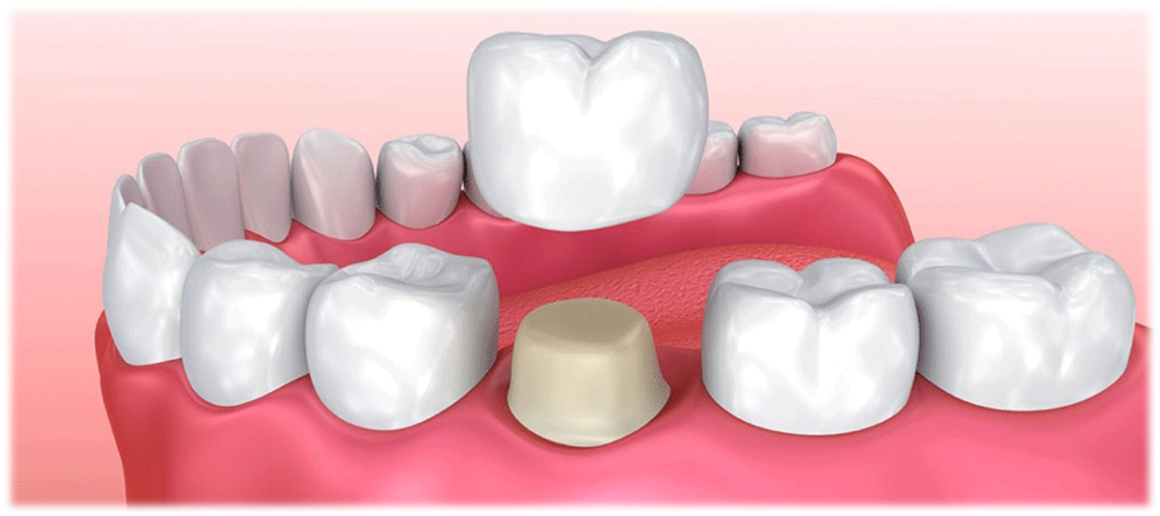A Stronger Bite, a More Beautiful Smile… Crowns are Magic!
You Can Depend on This Restoration
Dental crowns are incredibly durable and successful dental restorations. They’re actually one of the most common dental procedures performed next to fillings. A crown caps or helmets over the entire visible part of a tooth, restoring the tooth’s natural shape while also providing support. Crowns are generally used for the following purposes:
Restorative: Crowns are ideal for when there has been extensive damage to a tooth that a filling alone would not sufficiently restore. A crown protects the tooth from future damage, and is often required for support after a tooth has been treated with root canal therapy.
Cosmetic: Crowns can alternatively be used to improve the tooth’s appearance. In this case, porcelain, ceramic or resin crowns are used, due to their aesthetically pleasing appearance and ability to blend seamlessly with the natural teeth.
A lot to choose from…
The materials used for dental crowns vary quite a bit. Crowns can be made from materials like gold, stainless steel, all porcelain or porcelain fused to gold, Zirconia, and composite resin (the material used for tooth-coloured or white fillings). Each material has their own unique set of advantages. Your dentist will be able to help you compare materials so that you can make the best decision possible when it comes to your crown.
How does a patient get “crowned”?
Typically, a patient will need to schedule two separate appointments with the dentist in order to receive a perfectly fitted crown. During the first visit, the dentist will examine the tooth and prepare it by filing it down. In some cases, if the tooth happens to be significantly damaged, the dentist may need to use a filling material to bring it up to a sufficient size to fit the dental crown. Next, the dentist will take an impression or mould of the tooth, including the neighbouring teeth. This impression will be sent off to a dental lab for creation. The patient will receive a temporary crown to protect the tooth from any damage for the time being.
Once the dentist has received the crown from the lab, the patient will come back for their second and final visit to have the permanent crown placed. A special adhesive material is used to ensure a strong and durable hold that will last years with proper care.
Interested in a restoration or cosmetic enhancement with a crown? Contact our downtown Toronto dentist today for a consultation!

